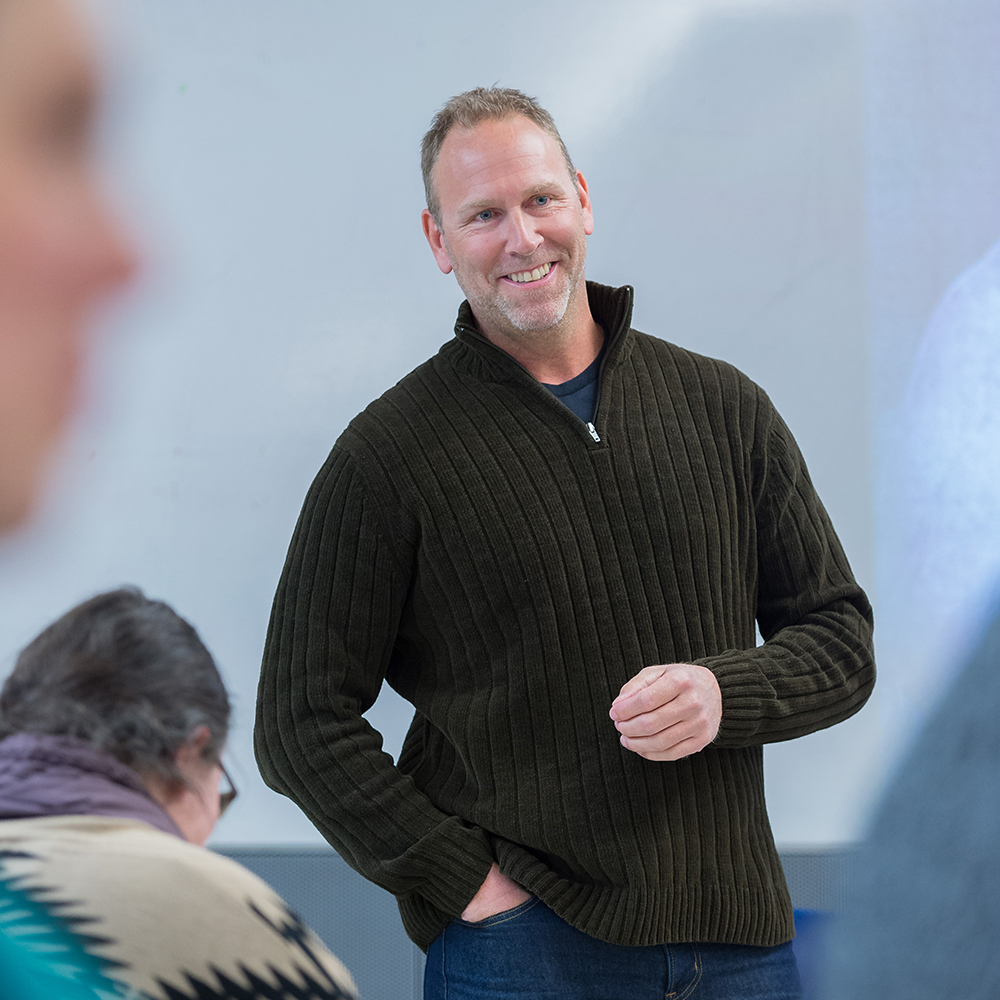Teacher Candidate Information
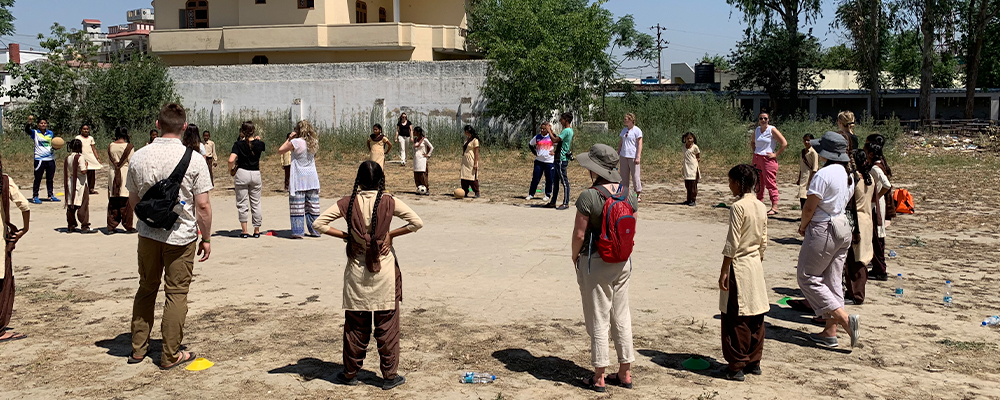
GETTING STARTED
In early February, you are required to arrange an initial meeting with your Community Partner. This is an opportunity for you and your Community Partner Host to:
- Introduce yourselves
- Share the reasons why you are both involved in the Community Field Experience (CFE)
- Clarify the role of the Partner organization
- Identify the organization’s needs related to that role
- Describe the project(s) planned for the CFE
- Discuss and assess the “fit” between the project and your skill sets and interests
- Establish mutual expectations for regular communication during the CFE (e.g., weekly meetings), for specific field experience goals, for project development/completion, etc.
While this does not all have to occur during the initial meeting, by ensuring clarity and a mutual understanding of these topics prior to the start of the CFE, you can help ensure the placement is considered a success to you and the Partner.
You are strongly encouraged to be open to teaching/learning possibilities that you may not have considered previously.
You must reconnect with their Community Partner no later than two weeks before the CFE starts. This reconnection helps avoid or minimize any confusion associated with any possible changes in the Community Partner’s organization or in the program expectations that may have occurred since your last communication.
Throughout all these meetings / emails, / phone calls etc., it is your responsibility to ensure that the expectations and procedures for yourself and your Partner (and your field advisor) are clear. It is recommended that you initiate weekly meetings with your Partner to maintain clear communication and to report progress throughout your placement.
Sample introductory email and request for meeting
Good morning [Host Partner Name, Formal],
My name is [Your Name] and I am a teacher candidate in the UBC Okanagan School of Education (OSE) who has been placed with [name of Partner organization] for my Community Field Experience (CFE).
I realize the CFE start date of [start date of CFE] is still some time away, however, I would like to make arrangements for an initial meeting with you in the next week or so, if convenient for you.
I appreciate that we are both busy but believe that a brief meeting now will greatly assist us in terms of ensuring that the time spent with [name of Partner organization] is optimized for us both. Is there a day in the next week when I could stop in to meet with you for 30 minutes? As I am in class most of the day, I am hoping to meet at, or after, 3:30 pm.
Thank-you for participating in the OSE Community Field Experience Program, I look forward to meeting you.
Sincerely,
[Your Name]
Initial Meeting Topics
- Introduce yourself
- Ask Host to give you a brief description of their organization’s role in the community and compare that with your perception based on your previous experience and/or research
- Ask the Host their reasons for participating in the CFE
- Inquire about the Host’s thoughts regarding the possible project or tasks you will be working on during the CFE and about their expectations related to its completion. What are the hoped-for outcomes by the end of the CFE?
- Share your initial thoughts about your “fit” with the planned project/tasks (e.g., what are your related strengths and stretches) and your initial thoughts about the scope of the plan (e.g., does it seem realistic that it can be completed in the timeframe? Is too much or too little planned?).
- Indicate that over the next few weeks, you hope to establish their expectations regarding your daily protocol (e.g., start and end times), dress code, parking, on-site workspace, possible on-site partnerships (e.g., other staff that the teacher candidate will be working with), teaching/instructional opportunities or duties, possible job shadowing, etc.
If you are considering an out-of-town placement, please be aware that you are responsible for arranging and paying for your own transportation, accommodation, food and other expenses that may arise (e.g. additional vaccines).
There may be some assistance for international placements available; please discuss with the Field Experience Coordinator for more information.
You are required to complete and submit proof of completion of this training PRIOR to the start of the CFE placement.
Participants completing this training will be able to:
- Define workplace bullying and harassment
- Recognize workplace bullying and harassment
- Identify behaviours that do not constitute bullying and harassment
- Describe the duties of employers, supervisors, and workers, with respect to workplace bullying and harassment.
- Respond to situations involving workplace bullying and harassment
Learn more about Bullying and Harassment Prevention at UBC at bullyingandharassment.ubc.ca
In order to satisfy WorkSafeBC conditions for coverage during a Community Field Experience, all teacher candidates are required to complete and submit a Community Field Experience Safety Orientation Form.
In April, the Community Field Experience Coordinator in conjunction with the field advisors will request that all teacher candidates complete the form. The form is to be completed and submitted by the teacher candidate the first or second day after arriving at their Community Field Experience site.
In the event that a teacher candidate is placed at multiple Community Field Experience sites, the must be completed and signed for each site. Candidates are not required to complete a the form for field trips taken during their Community Field Experience.
All candidates completing a Community Field Experience, including those completing theirs outside of BC are required by UBC to complete the form.
UBC Students participating in practicum or clinical placements within BC have WorkSafeBC coverage provided by the Ministry of Advanced Education. Although these students are covered by the Ministry, UBC continues to have responsibilities in relation to ensuring the safety of these students and working with the clinical placement organization to ensure that students are provided required training as outlined in part 3.22 – 3.25 of the BC Occupational Health and Safety Regulation (training and orientation).
Prior to the student’s practicum or clinical placement, the UBC Supervisor, in collaboration with the student’s on-site placement supervisor, is responsible for determining and documenting any and all required site-specific occupational safety education. At a minimum, this will be in compliance with WorkSafe BC Young and New Workers Orientation. During the first or second day after arriving at their Community Field Experience site, all occupational safety education must be provided to the student by the on-site placement supervisor, documented, and a copy of the documentation sent to the UBC Supervisor. The attached form is a general template developed by UBC Risk Management Services (RMS) for this purpose.
Teacher candidates who are going into facilities where there is a risk for active shooter may choose to watch the Active Shooter educational video provided by the UBC RMS Emergency Program. At a minimum, every student must know the emergency procedures at the worksite if something was to happen, including information on who to call and where emergency egress and meeting locations are.
Any candidate injured or involved in an accident or “near-miss” while on their practicum must advise their UBC placement coordinator (or equivalent UBC supervisor) of the incident and complete an incident report through the CAIRS online reporting system.
The candidate is required to include in the report, their UBC Supervisor’s email and phone contact information.
Gain experience developing curriculum
Some teacher candidates may see developing a curriculum for non-traditional learning environments as a challenging experience. Being involved in these opportunities, though, gives you the knowledge and experience of what curriculum development can be used for.
The completion of these types of initiatives leaves you well-positioned for a range of potential prospects in the community. Following the CFE, you are encouraged to leave their contact information with the host. Intelligent, creative, enthusiastic employees are assets in any professional capacity!
Networking
In addition to representing the UBC Okanagan School of Education during the CFE, you are also developing their professional reputation. It is important for you to understand that the people they work with, whether a staff member or another teacher candidate, may be in a position to open doors for them in the future. With this in mind, you should at all times:
- Dress and act professionally (appropriately for the location)
- Treat everyone you meet, no matter what their role or relationship to the organization, with friendliness and respect
- Be supportive, encouraging and respectful of colleagues and the host organization
- Provide suggestions but remain respectful of the opinions or perspectives of the host
- Be enthusiastic and open to suggestions and feedback (and implementation of the feedback)
Building skills
While the CFE is expected to provide teacher candidates with a vital enrichment opportunity, there may be occasions where the relevance or applicability of a particular placement may not seem directly apparent. It is important to remember that even the most seemingly irrelevant experiences one has in life can build skills and deliver advantages later on. It is up to the individual to recognize the opportunities present in every experience.
For example, dealing with irate clients in customer service could develop a pre-service teacher’s ability to diffuse anger and problem-solve. Later, these communication skills could help in calming and reassuring demanding parents. Other examples of important skills that may be developed during the CFE include:
- Networking
- Initiative
- Professionalism
- Collaboration
- Teamwork
The importance of initiative
Although Community Partners have created teaching and learning opportunities for the teacher candidate, the partner may not be aware of the teacher candidate’s full potential. Therefore, you should ask themselves questions such as: “How can my professional skills, my experience, interests, passions, hobbies, etc. help the Community Partner?”, and “How can I communicate this information to my Partner prior to and/or throughout the placement?”.
For example, if you have expertise in web design, you could discuss this information with your Community Partner before the CFE starts. It could possibly result in helping the Community Partner create an online platform for their clients to access the curriculum and/or other resource materials in an engaging way.
A letter of reference
Before leaving your placement, you should consider asking their host for a reference letter or ask if the host would be willing to act as a reference. (You should always notify the host before using them as a reference.) It is important to remember that for various reasons, not all Community Partners may wish to provide a letter of reference.
GRADES & ATTENDANCE
Community partners are encouraged to keep teacher candidates engaged for a minimum of five hours per day, to a maximum of eight hours per day. The exact dates and working times, and location for these working times, are negotiated between you and your partner.
For example, in some placements such as an after-school program, you may be required to work from 10:30 a.m. to 6:30 p.m. Some placements will include weekends or evenings; others will involve regular business or school hours. You will have to adapt to your Community Partner’s hours.
The workday protocol should be established with your community partner well in advance of the start of the placement. It is not appropriate to tell the community partner that you only work “teacher hours.” At the same time, because your time with the community partner is governed by the regulations of the Workers Compensation Board, if a partner runs a program where you work more than eight hours (e.g. some outdoor camps), your Partner must clear the overtime with you ahead of time.
You are required to alert your community partner and the Community Field Experience Coordinator as soon as possible when you discover you will not be able to arrive at your CFE on time or at all (e.g. illness, buses not running, traffic jam, etc.). You must also ensure your field advisor, community partner, and the Community Field Experience Coordinator are aware of any missed days.
All missed time must be made up before you will receive a Pass/Fail grade for EDUC 442: Community Field Experience. You must discuss options with the Community Field Experience Coordinator if the time cannot be made up (e.g. returning from an international Community Field Experience).
Roles & Responsibilities
The field advisor’s role is to guide your experience with an inquiry lens and support your journey as scholar-practitioner (teacher as inquirer). They will be in touch at by email, phone, or other online means. This experience will be supported through Advisory classes in April and May.
The advisor’s role is to support your self-assessment, help you recognize skills and competencies, help you identify new learning opportunities, and how to assess and strategize approaches to new challenges. The advisor will also debrief with you following your placement.
The Community Field Experience (CFE) Coordinator’s role is to be your contact and a source of reference and guidance, to celebrate accomplishments, to monitor your satisfaction and progress during the placement, and to mentor you if you are struggling to form an effective working relationship with your Community Partner.
You should contact the CFE Coordinator (and cc your field advisor) with any and all your CFE questions.
Whether or not you are working in a traditional classroom during your CFE, you are expected to follow the BCTF Code of Ethics and the BCTF Professional Ethics, Rights and Standards. Sanctions may be applied for failure to follow these guidelines.
Steps for a Successful Community Field Experience
- Read, understand, and meet the expectations outlined in the
 Community Field Experience Guide and the EDUC 442 course syllabus.
Community Field Experience Guide and the EDUC 442 course syllabus. - Contact your Community Partner well before the Community Field Experience start date (February) to introduce yourself, and discuss opportunities to assist with and learn from the Partner’s educational opportunities. Review “Communication between you and your Community Partner” in the above section.
- Provide your field advisor with the name and contact information for your Community Partner Host.
- Complete UBC’s training on preventing workplace harassment and bullying.
- If you are placed internationally you must register with UBC’s Safety Abroad though International Programs and Services.
- On the first or second day of your Community Field Experience (CFE), complete your WorkSafe BC Orientation and Checklist form with your Host, and submit it to the CFE Coordinator
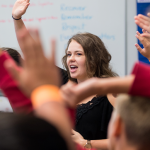
- Dress and act in a professional manner
- Take initiative (i.e. actively engage with site staff and site activities/projects; schedule and participate in regular discussions with your Community Partner, etc.)
- Follow all rules, guidelines, policies, regulations and laws laid out by the Community Partner organization, the local community, the district, the province/state, and country in which the Community Partner functions
- Complete any tasks related to the placement
- Ensure you are meeting the Community Field Experience attendance requirements
- Be flexible, and be actively involved in all aspects of your Community Field Experience placement
- Communicate with your field advisor on a weekly basis
- Complete and submit the weekly reflective journal submissions that demonstrate your changing and growing understanding of learning and teaching
- If you are injured or involved in an accident or “near-miss” while on your practicum, you must advise the Field Experience Coordinator and your field advisor of the incident and complete an incident report through the CAIRS online reporting system.
- During the last few days of your CFE, remind your Community Partner Host to fill out their Community Partner Feedback Form – we encourage Partners to fill out the form with you.
- Complete the Teacher Candidate Feedback Form
 .
. - Remind your Community Partner to complete the Community Partner Feedback Form if they haven’t already filled it out (ideally with you).
- Thank your Community Partner for hosting you.
- Optional: Ask for a reference letter or if they will be a reference.
Tips for International Community Field Experiences
- Accommodations
- Purchasing Travel Tickets
- Communication Challenges
- Communicating with International Partners
- Travel Dates
International bound teacher candidates may or may not be responsible for finding their own accommodations. In some cases, the hosting organization offers accommodation in campus dorms or local home-stays. You will be informed well in advance if you have to find your own accommodations.
In most cases, there is a cost associated with accommodations.
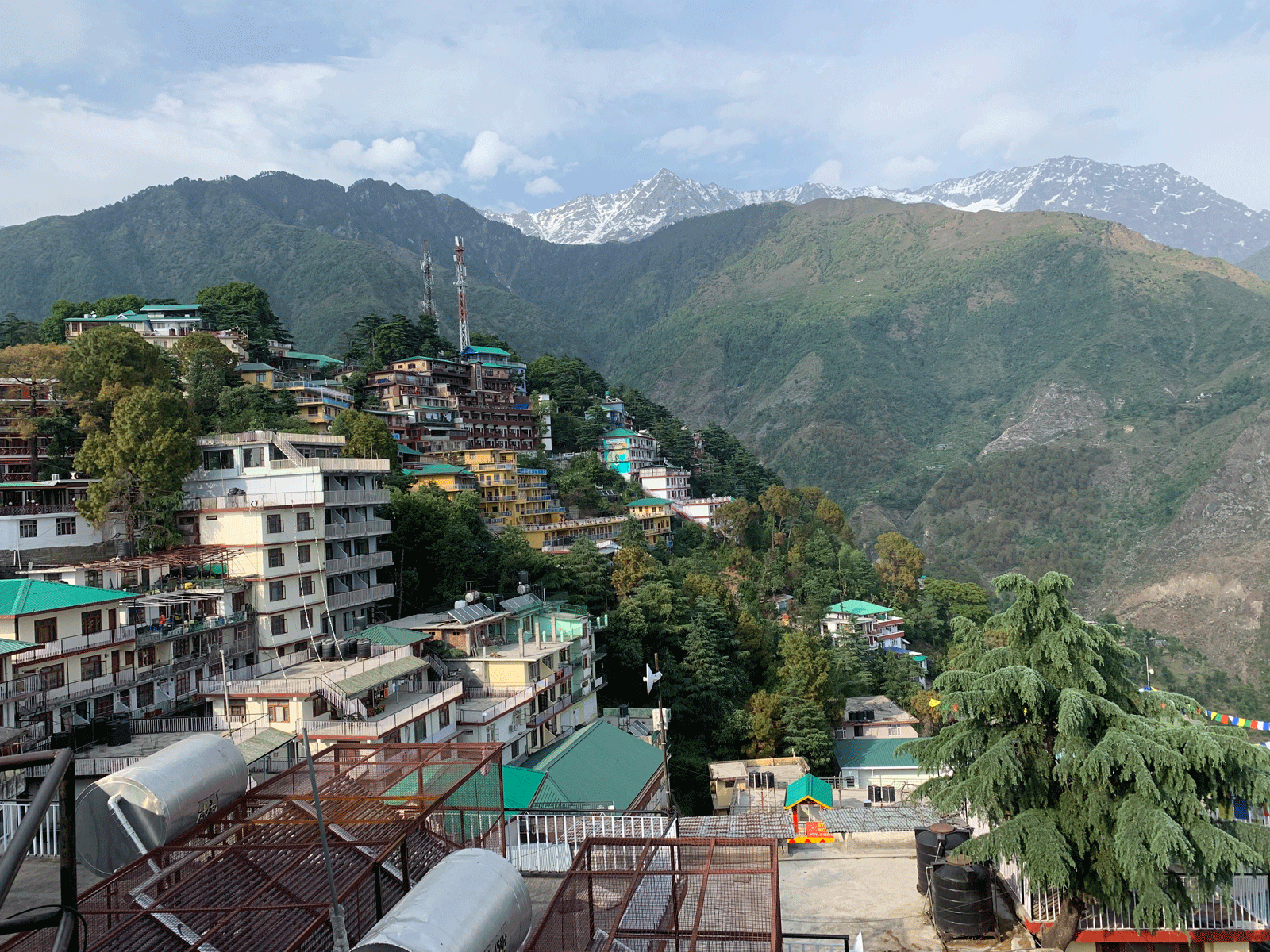
You are advised to leave the purchase of airline tickets until the midway point of their 10-week practicum. This is to avoid having to recover funds in the rare case that you are unable to proceed with the international community field experience, due to not passing a practicum or other coursework.
Regardless of when a travel ticket is purchased, you are strongly advised to purchase flight/trip/travel cancellation insurance in the event that they are unable to proceed with their community field experience. You are also strongly advised to purchase trip cancellation insurance that covers cancellation due to reasons associated with a university program.
In some cases, field advisors may find it difficult to communicate with candidates bound for an international CFE. Ease of communication often depends on the quality and availability of an Internet connection, phone availability, or time differences. If communication is suspected to be difficult (or unknown), you and your field advisor will discuss communication accommodations and alternative methods of contact.
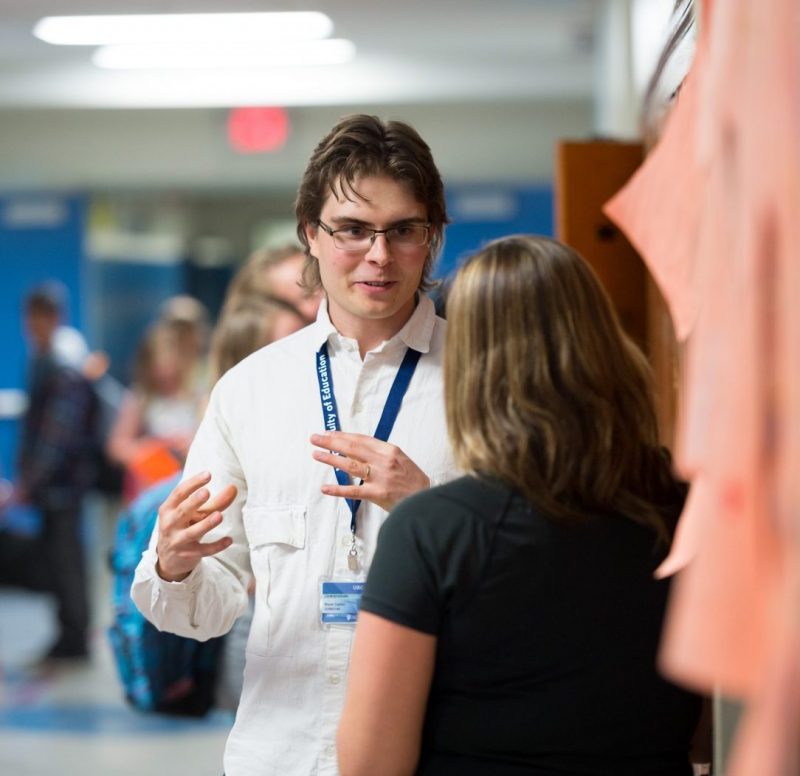
Prior to the start of an international CFE, all you are required to communicate with their international Community Partners by email and/or phone as often as possible. It is important that you understand the numerous details of your placement (e.g. accommodations, orientation schedule, food costs, instructional expectations, etc.).
During the CFE, field advisors will contact the Community Partner at least once to introduce themselves and to thank the partner for hosting a candidate. You are required to provide their field advisor and the Community Field Experience Coordinator with the contact information of the Community Partner organization and Host and, if possible, their accommodations.
The CFE is preceded by your extended practicum and followed by program coursework. You are required to plan departure and return flights that do not shorten your extended practicum or make you late for the coursework following the CFE.
